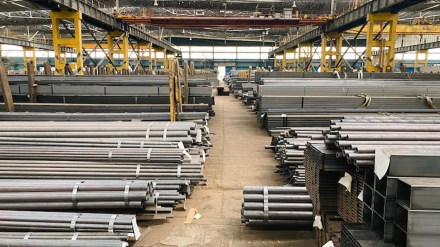Though US president Donald Trump signalled re-imposition of additional tariffs on steel and aluminum, the Indian government would wait to see the actual nature of the barriers, and whether these would apply to all major trading partners of the US, before deciding on its counter-strategy.
Any move by the US to impose additional tariffs on imports of steel and aluminium, if applied equally to all exporting countries, will not have an adverse impact on India, a senior government functionary said on Monday.
Separately, steel secretary Sandeep Poundrik said on the sidelines of an event that the US move will not have much impact on the Indian steel makers, as the domestic market is strong and only a small quantity of domestic steel is exported to the US. “We produced 145 million tonnes of steel last year, of which just 95,000 tonnes was exported to the US. So, how does it (US tariffs) matter?,” he said.
However, industry circles apprehend a surge in steel imports if the tariff-affected countries look for alternative markets, to offset of loss of sales in the US markets.
In the last instance, steel and aluminium products were subjected to 25% and 10% tariffs respectively by the US for all of its major trading partners in 2018, but the measure was later relaxed for most. In India’s case, the tariffs were removed in July 2023, under a broader trade resolution announced during prime minister Narendra Modi’s visit to Washington.
The current move, going by Trump’s statement on Sunday, may be for a 25% tariff for both product categories, over and above the existing duties.
As steel and aluminium duties by the US looked in the offing after Trump assumed office, the delay in announcements was leading to some delays in new orders bookings by the US buyers as they did not want to be taken off-guard, according to exporters.
In April-November steel and steel product exports to the US were $ 2.3 billion and aluminium products $ 516 million.
In March 2018, the then Trump administration imposed a 25% tariff on steel and a 10% Customs duty on aluminium products on most countries including India, citing national security concerns. Over time, however, the US relented in respect of several countries, including its largest trading partners Canada and Mexico and the European Union. In response to US tariffs, India imposed additional duties on imports of agri products, some steel items and chemicals, and subsequently, in 2023, as part of a deal 80% of Indian steel and aluminium exports were exempted from extra duties. In return, India also scaled back additional tariffs on US products.
“The return of tariffs on steel and aluminum could be used as leverage in trade negotiations. The 2018 tariffs were widely seen as an aggressive strategy to force trading partners into concessions. The latest move, if implemented, could lead to new trade disputes and retaliatory measures from affected countries,” founder of Global Trade Research Initiative Ajay Srivastava said.
Despite tariffs, steel and aluminum imports by the US have continued to rise since 2018, according to GTRI analysis. Its primary steel imports increased from $31.1 billion in 2018 to $33 billion in 2024. Steel pipes, tubes, and related products saw imports grow from $ 43.3 billion in 2018 to $52.7 billion in 2024. Aluminum and related products imports increased from $24.2 billion in 2018 to $28.3 billion in 2024.
